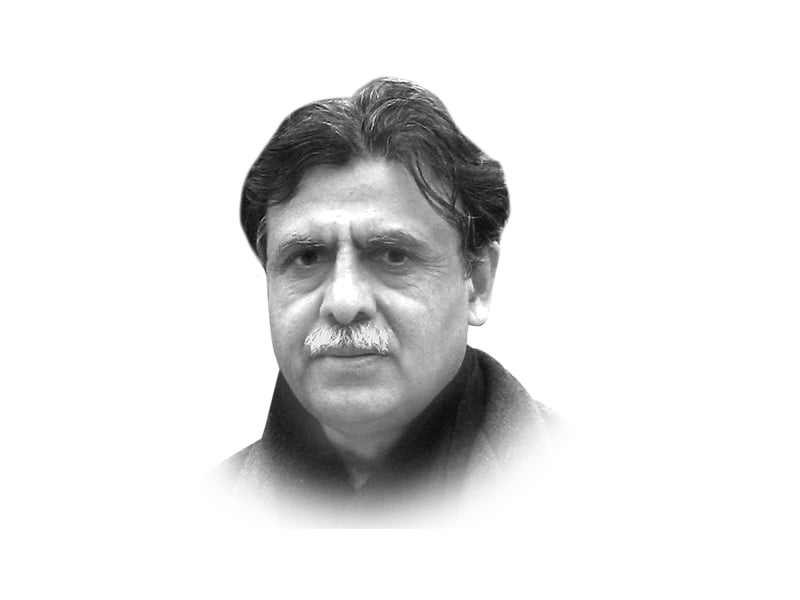
After Friday prayers, SQC sent a subordinate to drive me to his residence. It was a double-storey, elegant, old house with verandas facing the rooms. SQC greeted me warmly and gave an appearance somewhat similar to his father’s in a white kurta shalwar and a Sindhi cap. We got into an interesting discussion. He mentioned his early years at Sadiq Public School, Bahawalpur, where he had studied, and had fond memories of Mian Muhammad Ahmed Soomro, former chairman of the Senate, and Ishaq Khan Khakwani, a former minister, whom he described as a family member. We had so much to share on account of Bahawalpur, he being an alumni of Sadiq Public School, and I being a member of the school’s board of governors at a later point in time.
SQC was a vocal critic of the Awami League and felt that this was the reason the party was gunning for him by trying to frame charges of war crimes committed during the events of 1971. He was also upset at the thought that he was accused of having committed these crimes at a place from where he had been elected six times. He told me that in the last polls he had contested, he had defeated his opponent by a wide margin of 32,000 votes. As the shadows of the evening lengthened, I left his place with the hope to meet him again in the future. That moment never came.
Fast forward, to November 22, 2015, SQC, along with Mohammad Mojaheed of the Jamat-e-Islami, was hanged in Dhaka on charges of genocide and war crimes committed during the 1971 war. Pakistan’s lukewarm allusion to the 1974 Tripartite Agreement — to which India, Pakistan and Bangladesh were signatories and which emphasised the need for reconciliation — invited instant rebuke from Dhaka and was deemed interference in its domestic matters. The two accused had been tried by the international crimes tribunal, the setting up of which was well within the ambit of international law, and there is no denying the fact that the 1971 war was indeed a traumatic experience for the people of Bangladesh. The war crimes trial could be seen as a corollary to the narrative that justice for the victims of 1971 was needed. According to this narrative, more than three million people lost their lives. This figure, however, has been disputed by the scholar Sharmila Bose. Her research and methodology have been questioned by some quarters, but the point she made was that excesses were committed by both sides during the war, and were equally reprehensible. It should be noted that the Awami League government in 1973 had to pass an indemnity order, providing immunity to the freedom fighters for their acts during the war.
International protocols underline the requirement of due process, and the according of fair and equitable rights to the accused while trying them for war crimes. Bangladesh is party to the International Covenant on Civil and Political Rights. The key clause of the statute on such trials gives the accused the right to obtain attendance and examination of witnesses in his defence under the same conditions as those prevalent for the witnesses against him. This right has been recognised in all other international crimes tribunals, including those which probed war crimes in Rwanda and in former Yugoslavia. Watchdog groups around the world have been of the view that SQC did not get a fair trial. He was charged with 23 counts, confronted with 41 witnesses and was allowed to produce only four witnesses in his defence. He was convicted of nine charges for crimes that took place during April 13-17, 1971. His plea to produce witnesses of alibi during the crucial dates was not accepted and affidavits to that effect were declared inadmissible on technical grounds. The international statutes on the subject, however, underline that such tribunals are not bound by the technicality of evidence when it comes to ensuring fairness and transparency of trials. The scars of the 1971 war have been running so deep in Bangladesh that concerns over the fairness of the trials were outweighed by strong political undercurrents. Gleanings from the Bangladesh press reveal that along with war crimes, it was the “arrogance” of SQC and his “denigration” of Sheikh Mujibur Rehman after 1971 that was also under trial in the media. Mohammad Mujaheed had been handed the death sentence for crimes he had committed through his accomplices, who were neither identified nor put to trial.
As stated earlier, there is no denying that the people of erstwhile East Pakistan were subjected to serious injustices before and during 1971. However, the dictates of justice aren’t necessarily met if there are grave questions associated with the fairness of the war crimes tribunals. This is something that must not be forgotten.
Published in The Express Tribune, December 15th, 2015.
Like Opinion & Editorial on Facebook, follow @ETOpEd on Twitter to receive all updates on all our daily pieces.
1718870162-0/BeFunky-collage-(60)1718870162-0-405x300.webp)
1730504285-0/Martha-(1)1730504285-0-165x106.webp)











COMMENTS (7)
Comments are moderated and generally will be posted if they are on-topic and not abusive.
For more information, please see our Comments FAQ